We all feel a little anxious some of the time. But anxiety disorders are more than an occasional worry or fear. Approximately one-third of US adults experience any anxiety disorder at some time in their lives [1].
For those with these disorders, anxiety does not go away and is felt in many situations. And it can get worse over time. Common types include generalized anxiety disorder (GAD), panic disorder, social anxiety disorder, post-traumatic stress disorder, and a variety of phobia-related disorders [2].
In addition to therapy and medications, our diet can play a role in minimizing the effects of anxiety. Read on to learn more about some of these foods.
The Connection Between Food and Anxiety Management
Studies have shown an association between higher levels of anxiety and [3]:
- High-fat diet (of “bad’ fats such as saturated and trans fats)
- Inadequate tryptophan (an essential amino acid)
- Inadequate dietary protein
- High intake of sugar and refined carbohydrates
- “Unhealthy dietary patterns”
Foods can play a significant role in reducing anxiety by influencing brain chemistry and promoting overall well-being. One comprehensive study of food nutrition and anxiety showed an association between less anxiety and the following foods [3]:
| “Healthy” dietary patterns | Caloric restriction | Breakfast consumption |
| Broad-spectrum micronutrient supplementation | Zinc | Magnesium and selenium |
| More fruits and vegetables | Keto diet | Probiotics |
| Omega-3 fatty acids | Phytochemicals (plant-based compounds for their protection) |
Foods That Help Reduce Anxiety
- Fatty fish: By lowering inflammation and promoting serotonin (the “happy” neurotransmitter), fish such as salmon, mackerel, tuna and sardines support brain health and may reduce anxiety.
- Nuts and Seeds: High in magnesium and omega-3s, almonds, pumpkin seeds, flaxseeds, walnuts, and chia seeds can improve mood, reduce stress, and help regulate stress hormones.
- Dark Chocolate: Choose at least 70-80% cocoa of this flavonoid-containing food for maximum benefit to improve blood flow to the brain, lower cortisol levels, and reduce anxiety.
- Whole Grains: Boost serotonin production, promoting relaxation with oats, whole wheat bread, and brown rice—all complex carbohydrates.
- Fruits: Combat oxidative stress with blueberries, bananas, citrus fruits, and avocados, all rich in antioxidants, vitamin C, or magnesium.
- Vegetables: High in magnesium and folate, spinach, kale, broccoli, and asparagus support brain function and reduce anxiety.
- Probiotic-rich foods: Support gut health which is closely tied to mood regulation through the gut-brain axis, and enable beneficial bacteria that influence serotonin levels with yogurt, kefir, sauerkraut, and pickles.
- Chamomile Tea: This tea contains antioxidants that may have calming effects on the brain
- Water: Stay hydrated and avoid excessive caffeine or sugar to prevent mood swings.
Foods That Can Improve Mood
- Eggs: Help regulate neurotransmitters like serotonin, with eggs which are rich in B vitamins and choline.
- Lean Proteins: Turkey which is high in tryptophan, chicken, and other lean meats promote serotonin production for improved mood regulation.
- Low-Fat Dairy: Milk, cheese, and yogurt contain calcium and vitamin D that promote relaxation.
- Legumes: Magnesium and fiber are found in lentils and beans and can stabilize blood sugar levels and improve mood.
- Olive Oil: This staple of the Mediterranean diet supports general brain health.
With a balanced diet of these foods, you can foster mental resilience, help manage anxiety symptoms, and develop a more stable mood over time.
Improving Mental Health in Utah
Treatment is available in Utah. Are you or a loved one looking for a compassionate space to heal from trauma or PTSD, other mental health conditions, or addictions? Our licensed trauma-informed professional therapists and counselors at Corner Canyon Health Centers can provide compassionate help using a range of therapeutic and holistic techniques.
Reach out to our Admissions team now at Corner Canyon. We’re in a peaceful setting bordered by the beautiful Wasatch Mountains.

Sources
[1] National Institute of Mental Heath. Any Anxiety Disorder.
[2] National Institute of Mental Health. Anxiety Disorders.
[3] Aucoin M, LaChance L, Naidoo U, et al. Diet and anxiety: A scoping review. Nutrients. 2021;13(12):4418.
Gasmi A, Nasreen A, Menzel A, et al. Neurotransmitters regulation and food intake: The role of dietary sources in neurotransmission. Molecules. 2022;28(1):210. doi:10.3390/molecules28010210
Wu SX, Li J, Zhou DD, et al. Possible effects and mechanisms of dietary natural products and nutrients on depression and anxiety: A narrative review. Antioxidants (Basel). 2022;11(11):2132.












